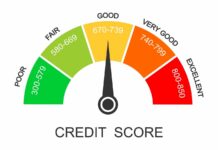Stimulus Payment Scams: In a warning, the Internal Revenue Service (IRS) said that impersonation scams aimed at senior citizens are becoming more dangerous, especially in South Carolina. For these scams, scammers pretend to be from the government to get personal and financial information.
Thieves pretend to be officials of organizations like the IRS to take advantage of their victims by instilling fear and lying.
IRS Commissioner Danny Werfel stressed that scammers frequently prey on the elderly by posing as representatives of the IRS or other organizations and contacting them by phone, email, or text message. To shield seniors from these frauds, he emphasized the significance of working together with other federal authorities and the tax community.
Beware of Federal Student Loan Forgiveness Scams: Here’s How to Spot Fraud
Stimulus Payment Scams: The most common Scams
Fraudsters are increasingly preying on senior adults by posing as IRS agents, according to a concerning trend that the IRS has noticed.
Using unusual techniques like gift cards or wire transfers, scammers like these induce individuals to pay right away by claiming they have to pay off fictitious tax liabilities or earn bogus refunds. To pass for real, they use intricate techniques, including fooling caller IDs.
Many times, scammers pose as representing reputable companies, charities, and even government departments, including Medicare, the Social Security Administration, and the IRS.
Using phoney caller IDs, they fool victims into believing the interactions are real. These scammers set up dire circumstances, including outstanding bills or large prize awards. The victims are duped into thinking they owe the IRS money, have overdue taxes, must validate their accounts, or have to pay a penalty to retrieve phony lottery winners.
Food Stamps Scams: Identifying Common Ones and Steps for Victims
These scammers make things seem very important and demand that you do something right away. They often use fears of arrest, deportation, license suspension, or computer viruses to get people to help them. They often ask people for private information, like the numbers on a gift card, and insist on strange ways to pay, like Bitcoin, wire transfers, payment apps, or gift cards.
How do I avoid these scams?
The IRS recommends people hang up right away if they get an unexpected contact from someone purporting to be from the IRS without getting any mail notification beforehand to avoid falling for these scams.
The number that the caller supplied or that appears on the caller ID should not be used to return calls. Taxpayers can reach IRS customer care at 800-829-1040 or the TTY/TDD line at 800-829-4059 for verification. Online at IRS.gov, taxpayers can also view the information of their tax accounts.




